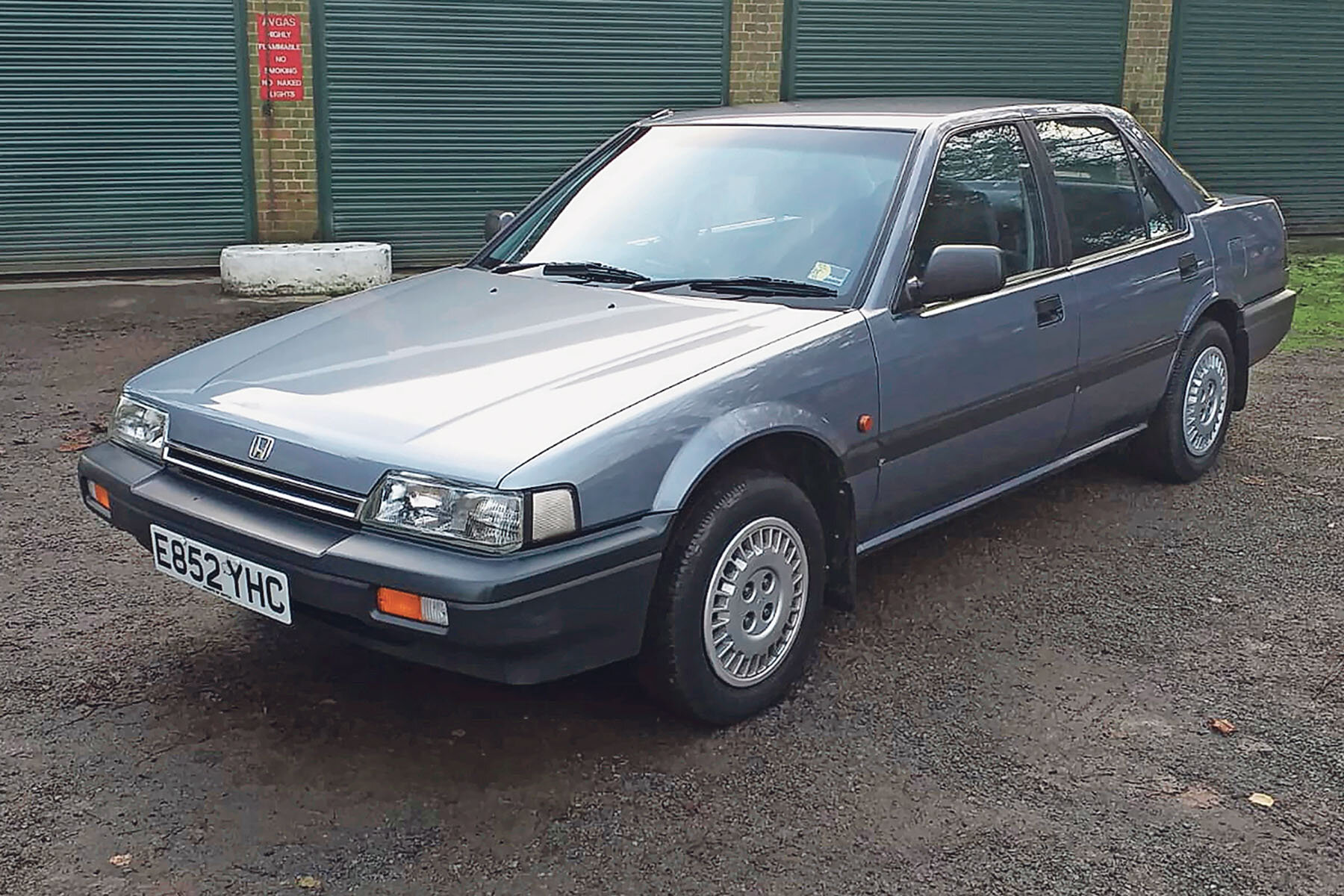
Every week, we’re highlighting an auction bargain that we reckon was well bought. Thanks to our friends at Classic Car Weekly, and its roving auction reporter, Richy Barnett, we’ll bring you some amazing cars at much lower-than-expected prices. This week, it’s a sharp-looking Honda Accord, which breezed through for a smidgeon over a grand.
Car 1988 Honda Accord 2.0i EX
Sold for £1068
Original estimate No reserve
Long story short: Rare, but few want them.
The Accord had higher-spec Cavaliers and Sierras in its sights, plus the BMW 3 Series (E30), the Mercedes-Benz 190 (W201) and Audi 80 (B3). None of these models are super-rare, but their numbers diminish on a daily basis, so better examples are soon snapped up.
However, there’s still some resistance from the old guard to these ‘moderns’, helping to keep values low. They tend to be well looked after. There’s a train of thought that Honda owners tend to be more fastidious about their car’s upkeep than those of more familiar rivals mainly because the lion’s share went to private buyers rather than company fleets.
Honda’s UK dealership network wasn’t huge at the time but enjoyed a very high customer loyalty rate, with people chopping in their existing Honda for the latest model. This one was in good nick. The bodywork looked very good, with tight shutlines, good panel fit and decent paint – a testament to its 41,000 miles. Even the plastic wheeltrims and bumpers were in good order.
You might also consider
Honda Accord price guide
Concours £3250-5750
Good £1500-2500
Usable £500-1500
Project £200-500
THIS CAR £1068
Well bought Honda Accord: The verdict
The underbonnet area was clean and tidy with paint on the bulkhead being almost unmarked. It was equally good inside; the blue cloth seats showed little signs of wear and could have been greatly improved with a clean, while the door cards and dashboard had no signs of cracking, fading or neglect. The carpets would have benefitted from a decent session with a wet and dry cleaner, though.
It was a no-reserve bargain. The buyer did extremely well here, and we’re finding that some of the best buys are those heading to auction with no reserve. Late-1980s family saloons still haven’t caught the market’s attention in the way that 1970s examples have, but are usually better built, drive better and remain comparatively cheap.
Buying a car that was built up to a quality and not down to a price is a good maxim, especially for those new to the classic scene. Coming with an MoT test until November and offered without reserve, this was a first-rate buy for some forward-thinking punter.
About Classic Car Weekly
Classic Car Weekly is the UK’s biggest-selling weekly classic car publication. It’s at the heart of the classic car scene, packed with cars for sale, news, reviews, nostalgia and advice.
